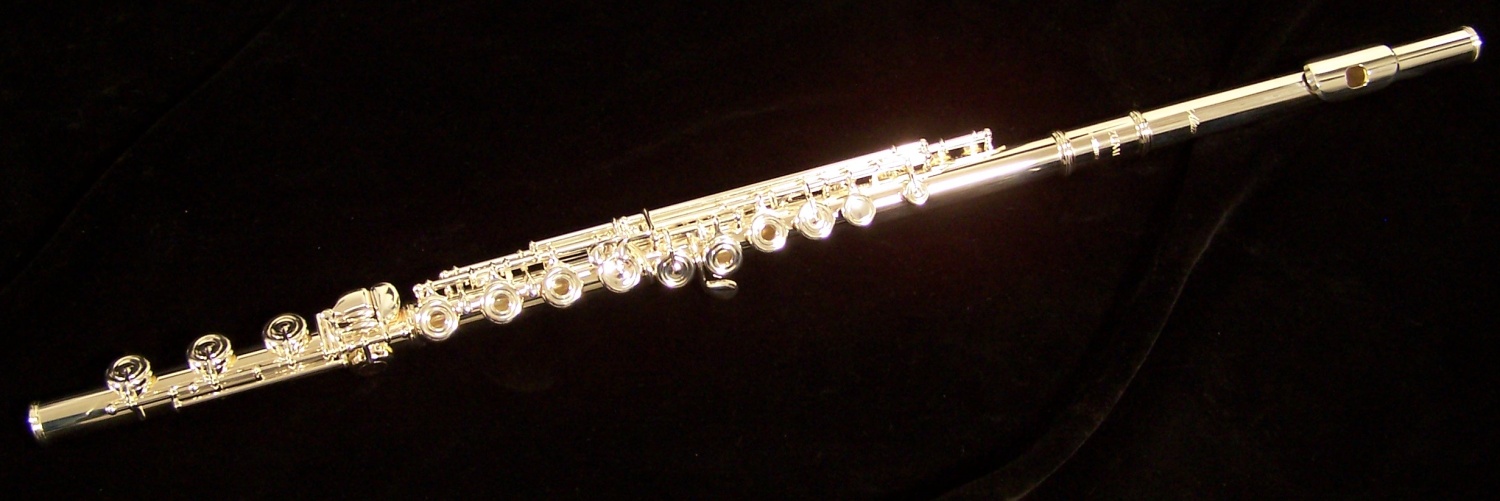
So, today, my husband is back to working on the mix-down of our performance of Carry On Wayward Son. As I listen to the balances he’s trying to achieve between sounds produced by un-effected me — pure, raw flute (loud) — and sounds produced by me through an effects unit (loud, but not as), I’m thinking to myself, I really like the sound of my instrument. I’m really not that thrilled with sounding like a saxophone, a lead guitar, a chorus of instruments, or any other warping of my sound waves.
Of course, what I think is irrelevant to what we’re trying to do. It took me a lot of practice and frustration to be able to manage the foot-switching on the effects unit at a fraction of a second prior to when the sound was supposed to happen …which, in the case of this piece, sometimes happens every two-and-three-quarter beats apart: Clean, effected, clean, effected — do it, do it, do it, do it.
There’s a lag — just a fraction of a second — that happens when you punch a button on an effects unit. It’s just a minuscule amount of time, but it’s critical. And, trained classically, which comes ‘on the beat’ rather than just before the beat like rockers play, my training coupled with the effects engagement lag compounds my problems, because it’s got to be right.
So, prior to recording day, I spent a week working very hard on my feet — an odd thing for a flutist to have to attend. I practiced …and recorded that practice — thank the cosmos for good recording software — then began adjusting my playing to ‘anticipate the beat’ and come in sounding ‘on time’ the varying micro-fractions (depending on which patch…and, yes, they all require different lead times) ahead of when normally one should. That worked. I was…happier. (Can’t say happy, just happier.) Next was trying to figure out the lag that happened between stomping on the effects unit button (switch banks, engage POG, step on one or another button, 1-10, and, simultaneously, with the other foot, ease on the volume pedal to the exact level specified in the performance notes, reversing the process two-and-three-quarters of a beat later.)
The lag was, literally, .121 seconds according to the sound wave and beat division markers contrasted against the actual time in thousands of a second. Right. I guessed at what I had to do, trying over and over …and I was running out of time. This was Thursday. We were recording on Saturday. Finally …finally, I got it. The wave form lined up. When Forrest came home from driving truck all week. I was ready. He was happy with my results, though I’m still not completely convinced. I feel I can do much better. (Intonation suffers. Posture suffers, me sliding into ‘hunch back’ with having to keep an eye on the LED readouts at my toes. I fall back into the bad habits, letting my fingers fly off the keys when I’m concentrating too much on getting everything digital right and not on just playing my flute.) I hope that, given time and experience, all the electronic ‘stuff’ becomes second nature so that I’m more comfortable and can, once again, just concentrate on playing, not coordinating all the paraphernalia required for plugged-in performances.
…Then, there’s getting over ‘red-light fright’, which happens any time Forrest hits the space-bar that starts everything recording us — instant diaphragm freeze and shaking fingers…. I WILL get over these pitfalls, just like I did the extreme stage fright I suffered in my youth. I am determined.

 “Could you play it a little less ‘white bread’?” Forrest asks, his eyes kind, but steady on mine, his fingers, as always, delicate in their grip on the neck of his newest guitar, a beautiful instrument that sounds as exquisite as it looks.
“Could you play it a little less ‘white bread’?” Forrest asks, his eyes kind, but steady on mine, his fingers, as always, delicate in their grip on the neck of his newest guitar, a beautiful instrument that sounds as exquisite as it looks.
